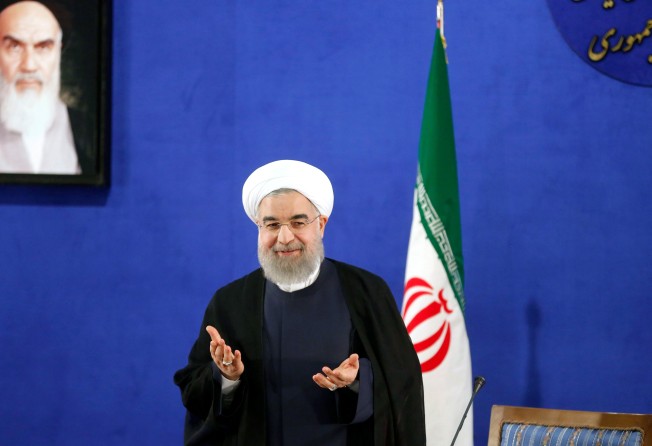The US would find a cooperative approach to Iran the better option
President Donald Trump’s repeated criticism of Iran does not help the Middle East situation, especially after the election of moderate leader

Engagement is always the best way for nations with strained relations to overcome differences. The decisive re-election of Hassan Rouhani as Iran’s president is therefore a welcome development. Voters turned to the moderate leader rather than his conservative challenger largely for the sake of continuing reforms centred on improving ties with the international community. It is a view US leader Donald Trump does not seem to share in his country’s dealings with the Shiite Muslim nation, confrontation appearing to be his preferred approach.
Trump repeatedly criticised Iran during his recent Middle East trip to Saudi Arabia, Israel and the Palestinian territories. He suggested to Israel’s prime minister, Benjamin Netanyahu, that Iranians believed they could “do what they want” in return for signing a nuclear deal with Western powers in 2015. In a speech in Riyadh to leaders of the Gulf Cooperation Council focused on fighting Islamist extremism, he blamed Tehran for the region’s instability. There is no disputing that Iran has helped fan the flames of conflict through its meddling in Syria, Yemen and Lebanon. But it is by no means the only country with such a record; Saudi Arabia, Iran’s bitter Sunni rival, is among nations also at fault.
Where Trump is headed with such rhetoric can only be guessed at. He and his administration have sent conflicting signals over the nuclear deal, a major triumph for former US president Barack Obama under which Tehran is required to limit its activities in return for a lifting of economic sanctions. While international inspections show Iran is complying, Trump’s officials have questioned the wisdom of the deal and reverted to the line that the nation is a leading state sponsor of terrorism. Such talk echoes that of previous presidents when building a case for military conflict, as with Iraq.
Rouhani is acutely aware of the need to comply with the deal; 57 per cent of Iranians voted for him because they felt the economy was safest in his hands. He has pledged greater foreign interaction and a shunning of extremism. But he still has to answer to Iran’s supreme leader Ayatollah Ali Khamenei and the conservative forces that support Hezbollah and other Shiite groups behind the region’s violence. The vote clearly tells the religious hierarchy that Iranians want peaceful engagement with other countries.
Trump called on Arab and Muslim governments to deal with the ideology behind terrorism and extremism. His singling out of Iran was not helpful, though. A more productive strategy would be through engagement by conversing and cooperating with Rouhani and others in his government eager to break with the past.